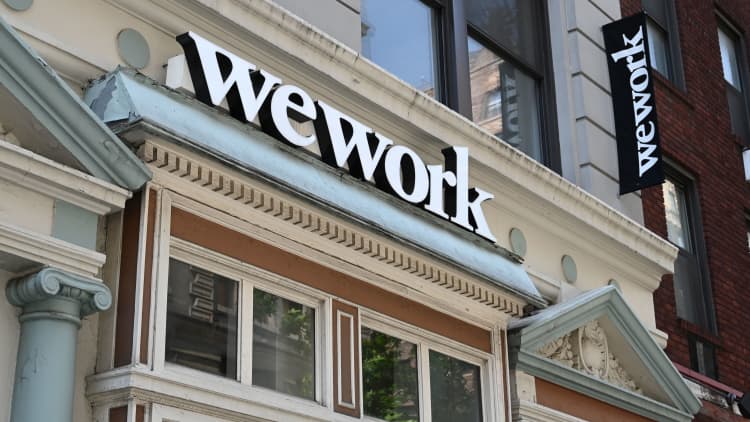The We Company, WeWork's parent company, named spiraling losses and the unpredictable real estate market as risk factors in its newly released IPO prospectus Wednesday, but comments from CEO Adam Neumann may generate some risks of his own.
Neumann gave interviews to Business Insider and Axios in May, just months before WeWork's S-1 became public. Those interviews are listed in WeWork's S-1 as potential risks to its business, as they may violate the Securities and Exchange Commission's IPO quiet period rules, which prevent companies from making certain public statements ahead of an initial public offering.
As the SEC states, the quiet period "extends from the time a company files a registration statement with the SEC until SEC staff declare the registration statement 'effective.'" WeWork announced in April that it had filed confidentially for an IPO in December 2018.
In both articles, Neumann and other WeWork executives discussed the company's "business strategy and results," the filing states. The company denied violating quiet period rules and said it would "vigorously" contest any claims that it committed a Securities Act violation.
"We do not believe that our involvement in the May 2019 online news articles or other news articles constitutes a violation of Section 5 of the Securities Act," WeWork said in its S-1 filing.
If a court decided that WeWork violated quiet period rules, the company said it would be required to repurchase all shares sold in its IPO at their original purchase price for one year following the violation, "plus statutory interest."
WeWork urged investors to refer to its IPO prospectus, not recent news articles, when evaluating the company.
Tech companies are no stranger to flirting with the SEC's quiet period rules. Google raised similar concerns when co-founders Larry Page and Sergey Brin gave Playboy magazine an interview in the lead up to the company's 2004 IPO.
Similarly, Match Group-owned Tinder caught flack after CEO Sean Rad gave a controversial interview to the London Evening Standard the night before its 2015 IPO. In 2004, the SEC forced Salesforce to delay its IPO after CEO Marc Benioff spoke to the New York Times during the quiet period.



